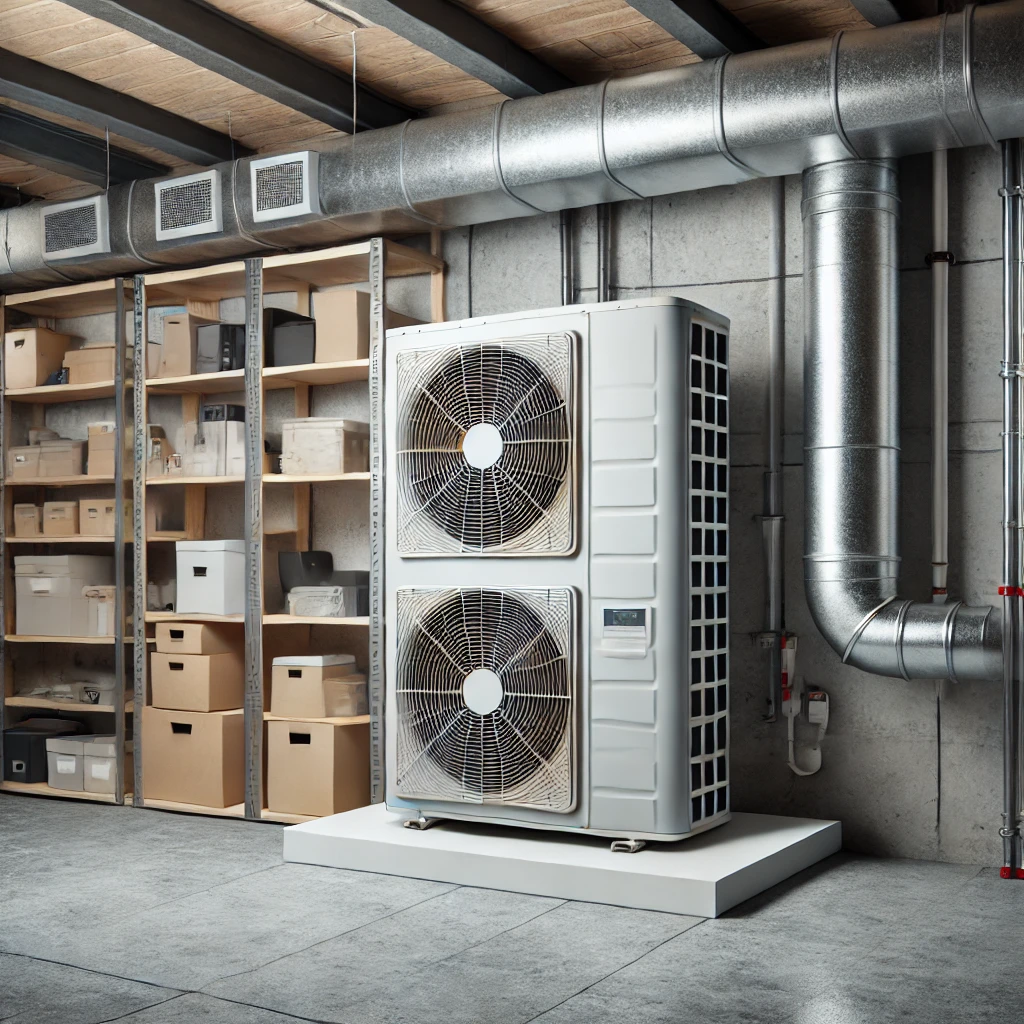To use an AC unit effectively in your basement, start by choosing the right type of air conditioner based on your space’s needs. For basements with no windows, a portable air conditioner or ductless mini split system can provide efficient cooling and humidity control. Ensure proper installation by placing the unit for optimal air circulation and insulating the space to keep cool air in.
Consider adding a dehumidifier to manage moisture and prevent mold. Regular maintenance of your AC unit, including cleaning or replacing air filters, is essential for long-term efficiency. By addressing these factors, you can make your basement a comfortable and cool space.
Understanding basement cooling needs
Contents
Basements often have unique cooling needs due to their layout and lack of windows. Basements can trap heat, moisture, and humidity, making it essential to choose the right air conditioning method. Understanding your basement’s cooling challenges, such as high humidity and inadequate ventilation, is the first step toward finding the perfect solution.
Choosing the right AC unit for your basement
When selecting an air conditioner for your basement, consider factors like the lack of windows and the need for efficient humidity control. Here are some popular options:
1. Portable Air conditioners: These units are perfect for basements with no windows. They usually come with an exhaust hose that you can run through a small opening or duct. Portable ACs are versatile and can be moved from room to room, making them a convenient choice.
2. Ductless mini-split systems: For a more permanent solution, a ductless mini-split system offers efficient cooling and dehumidification. These systems consist of an indoor unit and an outdoor condenser, connected by a small conduit. They are ideal for basements with no existing ductwork and can be customized for different cooling needs.
3. Window AC units: If your basement has a small window or sliding window, a window AC unit can be a good option. Make sure to choose a unit with a suitable cooling capacity for your basement’s size and insulation.
Addressing humidity and moisture
Basements are prone to high humidity and moisture, which can lead to mold and mildew growth. To combat this, consider using a dehumidifier in addition to your air conditioner. Dehumidifiers help control moisture levels, improving air quality and comfort.
Installation tips
Proper installation is crucial for optimal cooling efficiency. Here are a few tips:
1. Placement: Position your AC unit in a location that allows for proper air circulation. Avoid placing it near heat sources or in direct sunlight.
2. Insulation: Ensure your basement is well-insulated to keep the cool air in and the heat out. Insulating ducts and sealing any gaps can also improve cooling efficiency.
3. Ventilation: Good ventilation helps maintain air quality and reduces humidity. Make sure your basement has proper ventilation, either through vents or a mechanical system.
Energy efficiency and cost
Energy efficiency is a key consideration when choosing an AC unit. Look for units with a high SEER (Seasonal Energy Efficiency Ratio) rating for better energy savings. While ductless systems and central air units might have higher upfront costs, they can provide long-term savings on your electric bill due to their efficiency.
Energy audit: Consider having an energy audit performed by a professional to identify areas where you can improve energy efficiency. This can help you make informed decisions about your cooling system and insulation.
Maintenance and care
Regular maintenance is essential for keeping your AC unit running efficiently. Here are a few maintenance tips:
1. Air filters: Clean or replace air filters regularly to ensure proper airflow and air quality.
2. Professional maintenance: Schedule annual maintenance with a professional to check for any issues and ensure your system is operating efficiently.
3. Mold prevention: Keep an eye out for mold and mildew, especially in high-humidity areas. Regularly clean and inspect your basement to prevent mold growth.
Conclusion:
Using an AC unit in your basement can greatly improve comfort, whether you’re cooling a home theater, gym, or extra living space. By choosing the right type of AC unit, addressing humidity and moisture issues, and ensuring proper installation and maintenance, you can create a cool and comfortable environment in your basement.
Whether you opt for a portable air conditioner, ductless mini-split system, or window unit, remember to consider factors like insulation, ventilation, and energy efficiency to get the most out of your cooling system. With the right approach, your basement can be a pleasant and inviting space all year round.

